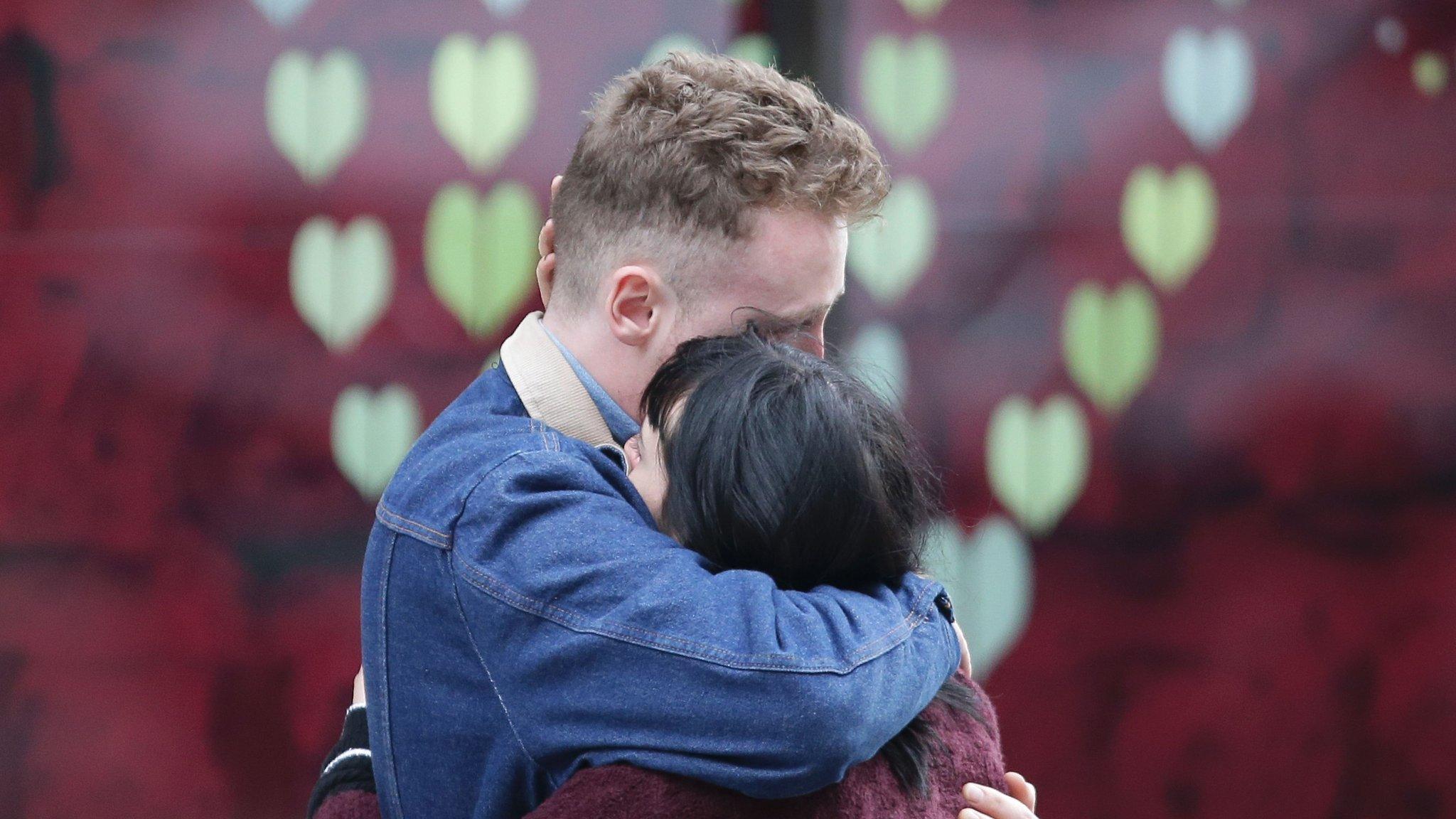Police 'must not be considered expendable'
- Published
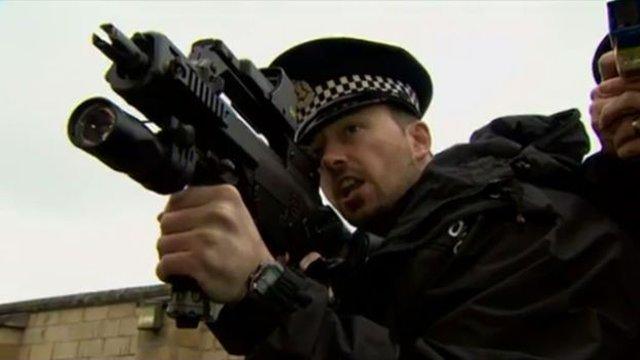
The Scottish Police Federation has said officers must not be "considered expendable" when dealing with terrorist attacks.
General secretary Calum Steele said unarmed officers were likely to be the first to respond to an incident.
But he asked: "How fair it is to expect them to do that when they are facing people intent on causing death and injury?"
Police Scotland has insisted its officers are appropriately resourced.
Michael Matheson, Scotland's cabinet secretary for justice, said the matter was being kept under "constant review".
Mr Steele told BBC Radio's Good Morning Scotland programme: "We have to ask how realistic it is in this day and age, with the threat that we face at this moment in time, how we expect unarmed police officers - and in the vast majority of cases it will be unarmed officers that will be the first to attend, or happen across those who are committing these attacks - how fair it is to expect them to do that when they are facing people intent on causing death and injury?"
He said the likelihood of armed officers being the first to attend such an incident was "very low indeed" in certain areas.
It was announced last year that the number of armed officers in Scotland was increasing from 250 to 374.
But Mr Steele said: "Let's not kid ourselves that that's extra police officers, because those armed police officers are coming from the contingent of other officers out there.
"When we consider that the fight against terrorism has to be about more than just guns and armed officers, that is more police officers that are being taken out of communities where evidence and intelligence is capable of being gathered, where community relations are being built."
'Considered expendable'
He added: "The police service cannot fight terrorism on its own and the intelligence services cannot fight terrorism on their own. As well as having the capability to gather intelligence and to form relationships and to build trust in our communities, we also have to have the tactical capabilities to respond.
"But we have to make sure we don't have police officers in a situation where they are likely to be considered expendable because they do not have the personal, protective equipment to look after themselves.
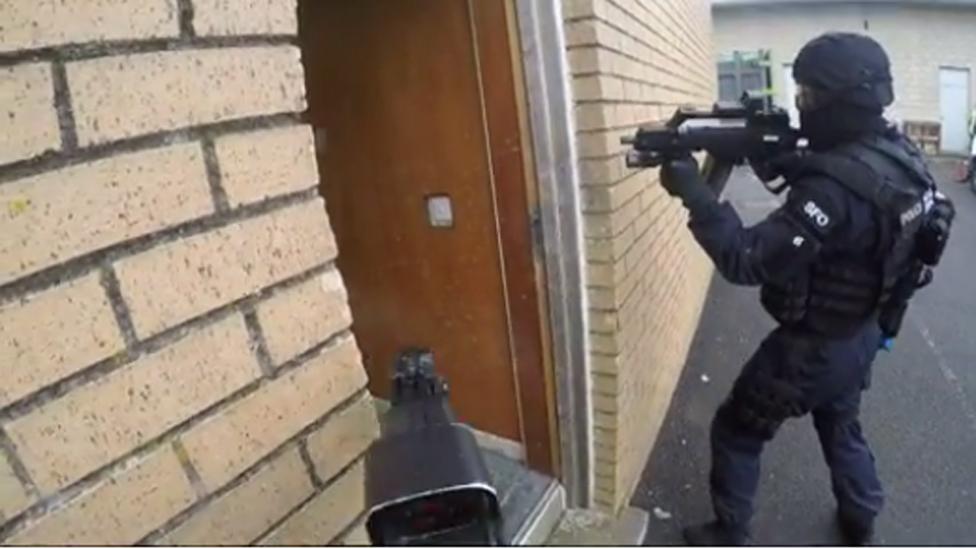
A counter-terrorist specialist firearms officer on training exercise
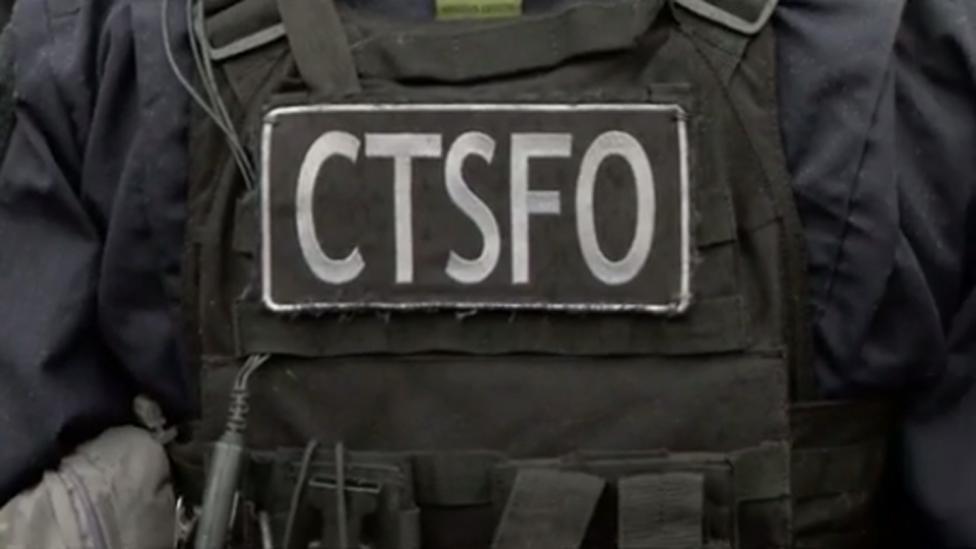
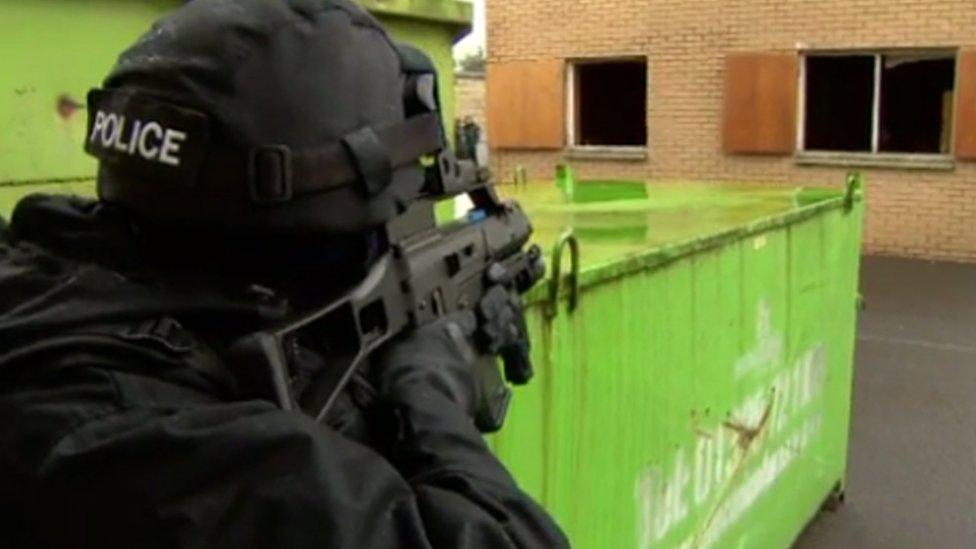
"We have police officers that are facing guns, knives, extreme violence and they do not have the capability of protecting themselves.
"How many police officers have to be killed, maimed or injured for that to be considered an acceptable price for what we're dealing with today?"
On Sunday, First Minister Nicola Sturgeon said Scotland would see a "substantial" increase in the number of armed police on duty in the immediate aftermath of the London attack.
However, she said there was no intelligence of any specific threat to Scotland.
'Numbers appropriate'
Assistant Chief Constable Nelson Telfer said Police Scotland had enough officers on the streets to respond to major incidents.
He told BBC Scotland: "We've increased our visible police presence, we've stood up more armed police, we've responded in the past to tragic events similar to Saturday night and I'm confident that the numbers in place on our streets are appropriate."
Justice Secretary Michael Matheson said there had been a "significant increase" in the number of firearms officers over the last year.
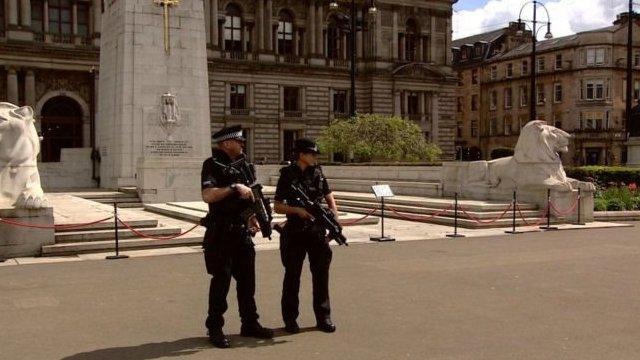
Nicola Sturgeon said there would be a "substantial" increase in the number of armed police on duty in Scotland
But he said their deployment was a matter for the chief constable.
"Whether he wishes to deploy them on a more regular basis, then that would be a matter that he would have to consider, but I'm confident from the feedback that I've had from Police Scotland that they believe they have the appropriate resources at present," he said.
"And that's an issue that they continue to keep under review."
Shot dead
Mr Matheson said the force had the "capacity and capability" to increase its firearms presence in the aftermath of the terror attacks in Manchester and London.
"It's important to recognise that firearms is only one aspect of tackling issues such as terrorism," he added.
"The work which is undertaken in local communities by our police and other agencies, in helping to make sure that we are tackling issues around extremism is absolutely crucial as well and that is where they can gather important intelligence around these matters and that measures can be taken at an early stage."
Seven people were killed and 48 injured in the attack in London on Saturday evening.
Three suspects were shot dead by police officers.
The attackers used a white van to hit pedestrians on London Bridge, before getting out and stabbing people in nearby Borough Market at about 22:00.
Police said the men, who were shot dead within eight minutes of the attack starting, were wearing fake bomb vests.
The so-called Islamic State group has claimed responsibility for the attack.
- Published4 June 2017
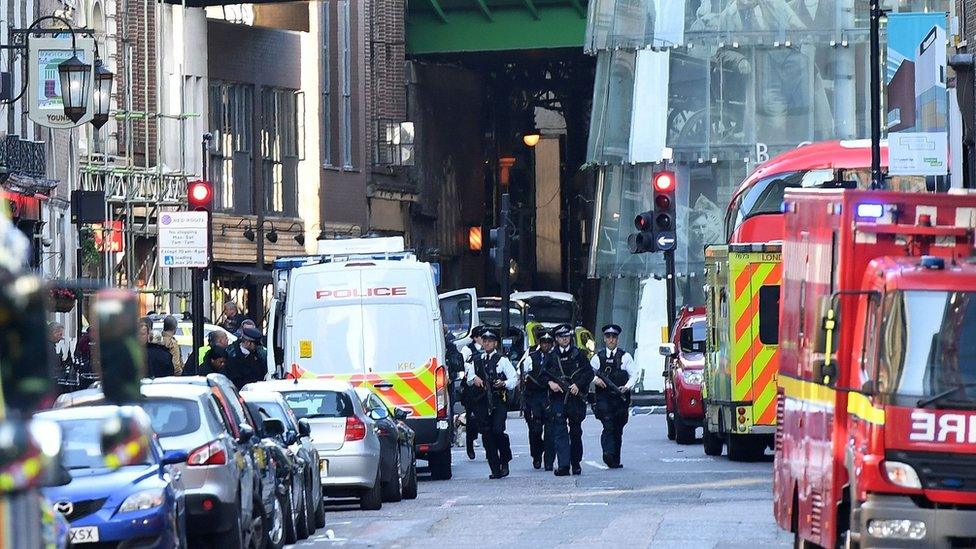
- Published3 June 2017
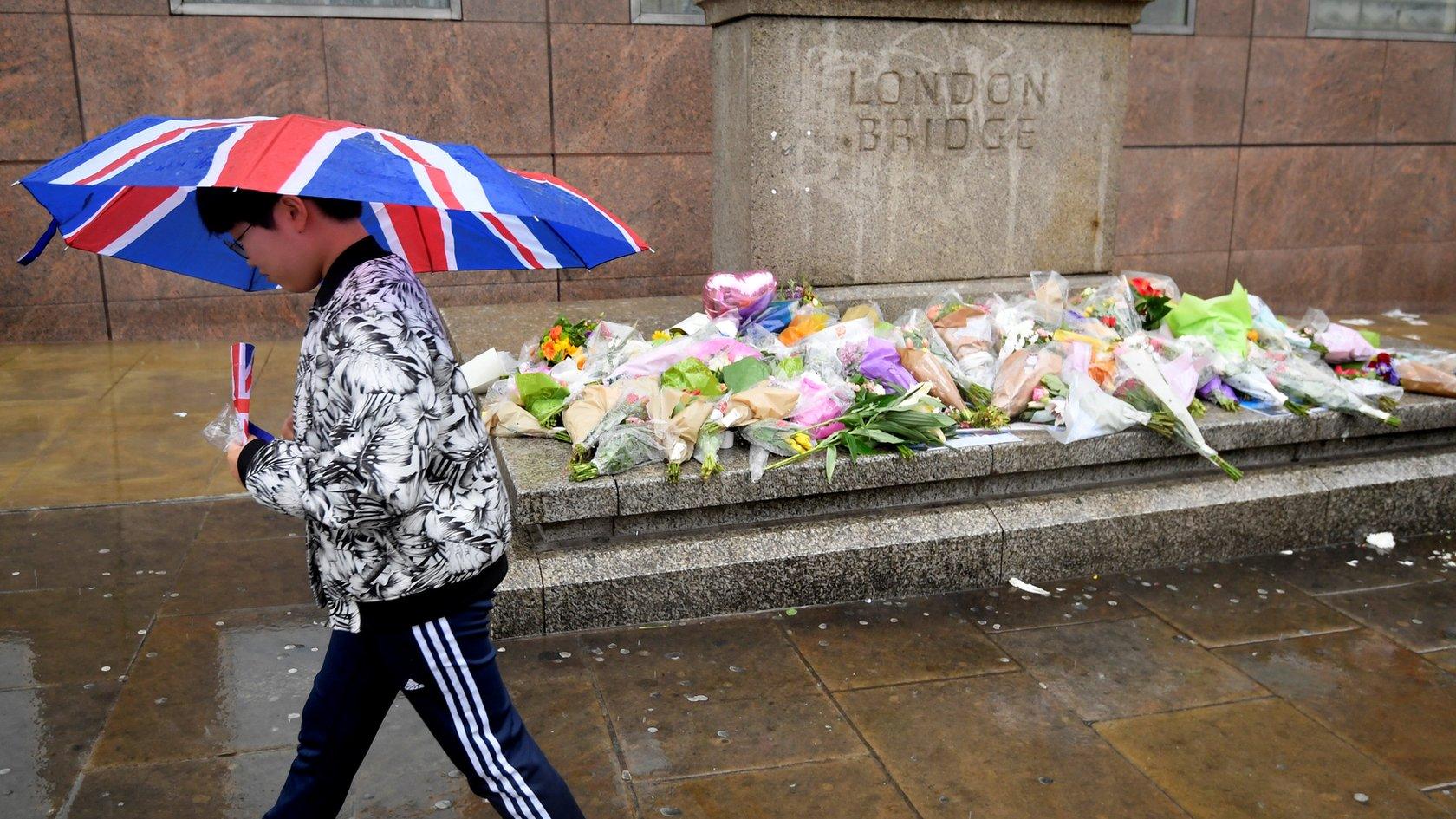
- Published5 June 2017
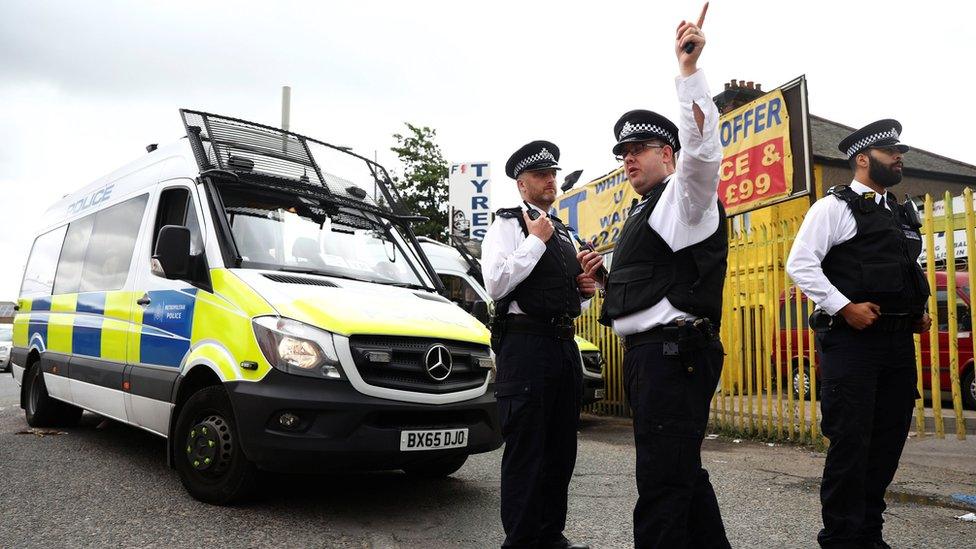
- Published22 May 2019
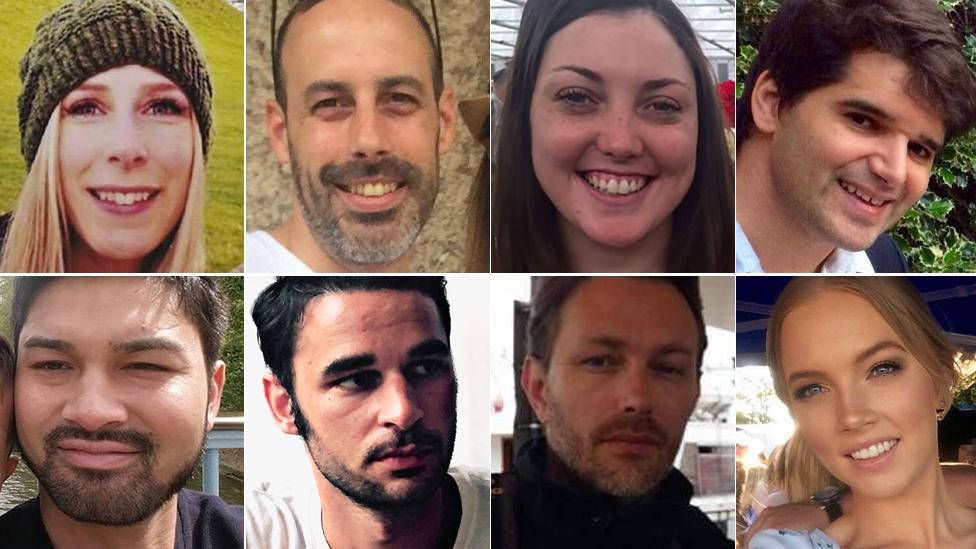
- Published5 June 2017
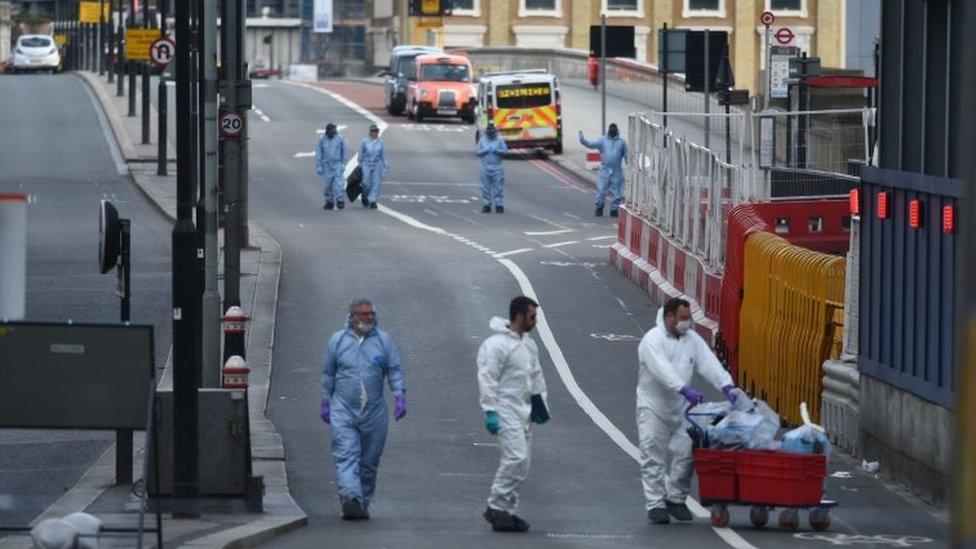
- Published3 May 2019
